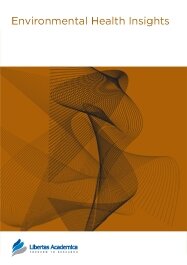

Publication Date: 02 Dec 2008
Journal: Environmental Health Insights

1Department of Sport, Culture and the Arts, University of Strathclyde, Glasgow, UK. 2Sport, Exercise and Health Sciences, University of Chichester, West Sussex, UK.
Abstract
Researchers are beginning to explore environmental correlates to further the field of physical activity research. Before interventions and experimental investigations can be undertaken, it is necessary to identify specific environmental features that are consistent correlates of physical activity. There has been a plethora of research measuring such cross-sectional associations since this field came to the fore in 2003. This paper posits that it is time for researchers to evaluate the state of knowledge, and suggests that future developments in this field focus on the theoretical bases for (i) measurement of the environment and (ii) understanding the links between perceptions of the environment and behaviour through psychological theories of cognition. Key theories considered include social ecology and the theory of planned behaviour. It is suggested that with a continued absence of a common conceptual framework, vocabulary and measurement tools the majority of studies may remain at a correlates stage. In highlighting issues with current methodologies, this commentary encourages more grounded theoretical approaches to the study of the environment and physical activity.
PDF (189.65 KB PDF FORMAT)
RIS citation (ENDNOTE, REFERENCE MANAGER, PROCITE, REFWORKS)
BibTex citation (BIBDESK, LATEX)
XML
PMC HTML
My experience in publishing our manuscript in Environmental Health Insights was positive. The speed of processing was the fastest of all the journals I have encountered. The peer review and editorial comments were to-the-point and professional. The open reader access greatly enhances article visibility. I would publish again in this journal if I have suitable studies to publish.

All authors are surveyed after their articles are published. Authors are asked to rate their experience in a variety of areas, and their responses help us to monitor our performance. Presented here are their responses in some key areas. No 'poor' or 'very poor' responses were received; these are represented in the 'other' category.See Our Results
Copyright © 2013 Libertas Academica Ltd (except open access articles and accompanying metadata and supplementary files.)
FacebookGoogle+Twitter
PinterestTumblrYouTube